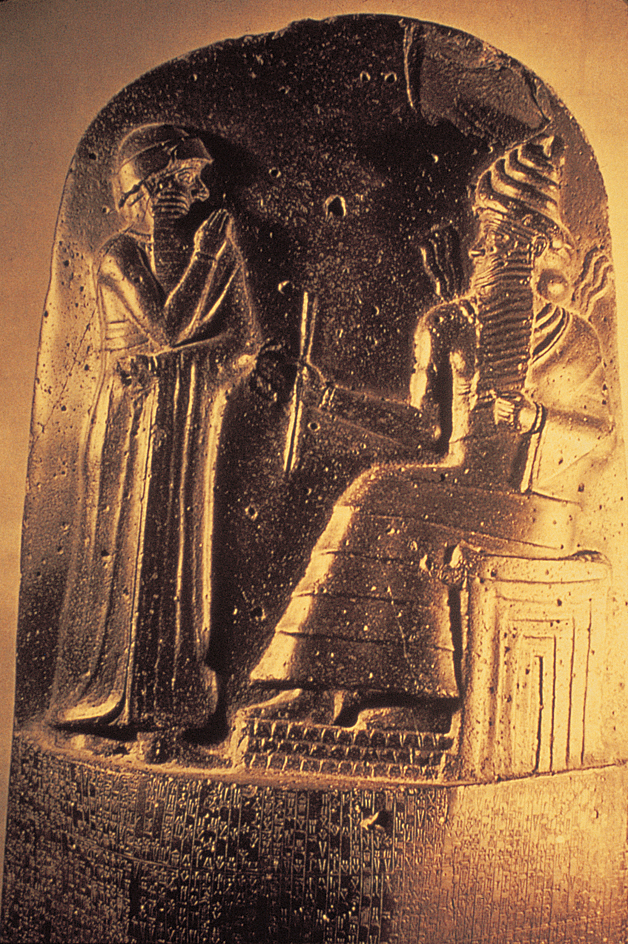Hammurabi, << `hah` mu RAH bee >> (?-1750 B.C.), also spelled Hammurapi, was a king of Babylonia who expanded his kingdom into the first great Babylonian empire. He also assembled one of the earliest written collections of laws, the Code of Hammurabi.

Hammurabi ruled Babylonia from 1792 to 1750 B.C. When he came to the throne, his kingdom consisted of the city of Babylon (near present-day Al Hillah, Iraq) and some surrounding territory. Babylonia was a small kingdom in Mesopotamia, a region that covered most of modern Iraq and parts of Syria and Turkey. Hammurabi conquered all the other kingdoms south to the Persian Gulf and united them under the Old Babylonian Empire. But most of the kingdoms regained their independence after his death.
Hammurabi based his code of laws on older collections of Sumerian and Akkadian laws, which he revised and expanded. One principle of the Code of Hammurabi is that “the strong shall not oppress the weak.” The code begins with a prologue (introduction) celebrating Hammurabi’s military victories. He promises to treat conquered peoples justly and says he honors their gods. The provisions of the code cover many legal matters, including false accusation, witchcraft, military service, land and business regulations, family laws, tariffs, wages, trades, loans, and debts.
In 1901 and 1902 in southwestern Iran, Vincent Scheil, a French archaeologist, unearthed several of the stone monuments on which the code was carved. The monuments lay in the ruins of Susa, capital of the ancient kingdom of Elam. An Elamite king had taken them there as a war trophy.
Much of what scholars know about Old Babylonian society and how it was divided into social classes comes from the Code of Hammurabi. The code also provides a valuable example of Akkadian, the ancient Babylonian language in which it is written.
